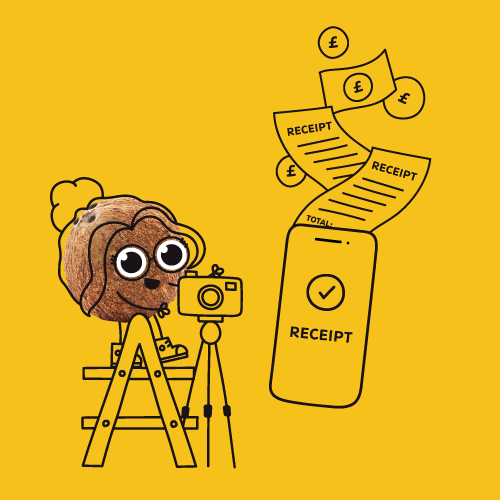Tax-wise, it’s not all bad news, thanks to “allowable expenses”. Your annual tax bill would be much higher without them. As the name suggests, they’re business expenses that HMRC allows you to claim against your income. Claiming all of your allowable expenses helps to lower your profits and minimise your tax bill.
When you go freelance or become a sole trader, there are many things you can leave behind, which can include a boss you dislike, a boring, dead-end job or ridiculously punishing workload. You might also be able to wave bye-bye to an arduous, expensive commute, “barely-managing” take-home pay or a lack of flexibility that doesn’t fit in with your other responsibilities.
Sadly, going freelance or becoming a sole trader doesn’t mean you can forget all about tax, of course. Unless your earnings are below the personal allowance threshold, you’ll need to pay tax, which means having to fill out and file a Self Assessment tax return.
Tax-wise, it’s not all bad news, thanks to “allowable expenses”. Your annual tax bill would be much higher without them. As the name suggests, they’re business expenses that HMRC allows you to claim against your income. Claiming all of your allowable expenses helps to lower your profits and minimise your tax bill. Here are 36 allowable expenses that you can claim as a sole trader or self-employed freelancer.
Allowable expenses for business premises
If you run your business from commercial premises, you can claim allowable expenses for mortgage interest (1) if buying, or rent (2) if not, as well as business rates (3),utilities (6) and insurance (7). If you’re paying to hot desk in a flexible workspace, this too can be claimed as an allowable expense (8).
Phone, broadband and stationery allowable expenses
You can also claim for landline telephone (9), mobile phone (10) and broadband (11) costs, either in full or a proportion for business use (you can’t claim for personal use, of course). Postage/courier (12) costs, stationery (13), printing(14), small office equipment (15) and computer software/ink cartridges (16) are all allowable expenses.
Need to know! If you use cash-basis accounting (where you record income or expenses only when you receive payment or pay a bill), the cost of equipment and tools (17) can also be claimed as an allowable expense. If you buy equipment, machinery or business vehicles to keep for use in your business, you claim capital allowances if you use traditional accounting (ie where you record invoices when you provide or receive them, which is usually before they’re paid).
Allowable expenses for business travel
Allowable expenses can also be claimed for fuel (18), but only for business-related journeys. You can also claim for vehicle insurance (19), vehicle repairs (20)and servicing (21), vehicle hire charges (22), vehicle licence fees (23) and breakdown cover (24). Parking (25), train, bus, air and taxi fares (26), hotel room costs (27) and meals for overnight business trips (28) are also allowable expenses.
Need to know! Parking and speeding fines are not allowable expenses, you’ll have to stick to the rules or pay them yourself.
Other allowable expenses
Allowable business expenses can be claimed for staff uniforms/branded T-shirts (29) and protective clothing (30), but not for a business suit, business shoes, blouse/shirt or tie. You cannot claim for everyday clothing that you wear for work, such as a pair of jeans or training shoes.
You can claim allowable expenses for advertising and marketing costs (31), as well as trade or professional journals (32), membership of a trade body or professional organisation (33), fees paid to an accountant or solicitor (34) and professional indemnity insurance (35) to protect yourself. Training (36) is also an allowable expense where directly relevant to your business.
Running a business from home
● Whether you run your business full-time or part-time from a room in your home, you can claim allowable expenses to cover most or some of the costs. This includes rent or mortgage interest, council tax, telephone, broadband, utilities, repairs and maintenance, equipment, stationery, etc.
● The amount you claim must be based on rooms used (normally one) and duration (ie five days per week x eight hours a day = 160 hours a month).
● You must work out a justifiable proportion of your domestic costs to claim based on your actual use.
● Alternatively, you can claim a flat rate under simplified expenses, but you need to make sure that this will not leave you out of pocket.
Six expenses that aren’t allowable
1. Commuting – You can’t claim tax expenses for journeys between your home and normal place of work. If you work at different locations, because you’re a joiner or mobile hairdresser, for example, you can charge for all work-related journeys (including trips to suppliers, etc).
2. Daily breakfast, lunch or dinner – Just because you’re self-employed, doesn’t entitle you to a free breakfast, lunch or dinner on your business. The only exception is if you travel to visit a customer/supplier/trade show and need to stay overnight, in which case you can claim a reasonable amount for food and accommodation.
3. Football/rugby/cricket/concert tickets – Another popular myth about self-employment is you can claim for entertaining yourself and potential/existing clients or suppliers, by taking them to the football, rugby, horseracing, a concert or out for a boozy lunch. Hospitality is a disallowable expense for sole traders.
4. Gym membership – Despite the obvious physical, mental and business benefits of going for a swim or workout at the gym, you cannot claim for gym/leisure centre membership fees, you’ll have to pay them yourself.
5. Spotify or Netflix subscription – However much you like to listen to your Spotify playlists while you work, you can’t claim your subscription as a tax expense. The same is true of Apple, Netflix and other TV subscriptions.
6. Donations to charity or political parties – Donations to charity are disallowable, no matter how good the cause you want to support. The same is true of political party donations, which must also come out of your own pocket.











